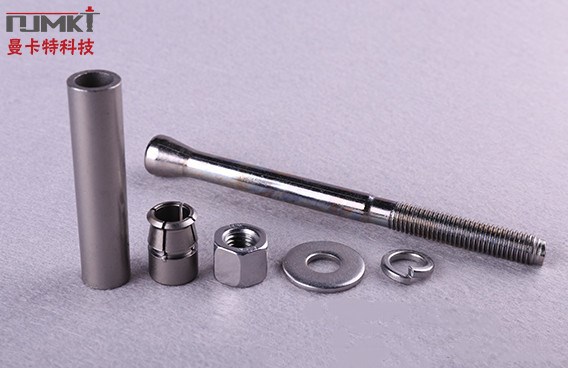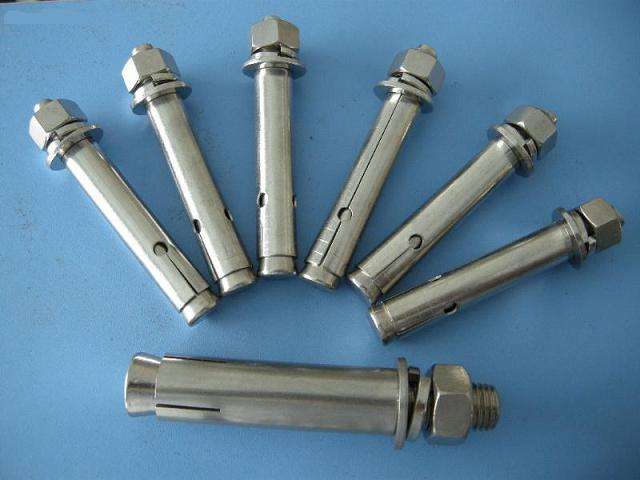What is a mechanical anchor?
Speaking of mechanical anchor bolts, it is mentioned in GB 50367-2013 Concrete Structure Reinforcement Design Specification 16.1.3: Anchor bolts for load-bearing structures should adopt post-expansion anchor bolts with mechanical locking effect. It is divided into three types according to different structures: self-expanding anchors, mold expanding anchors and adhesive expanding anchors.
(Of course, Nanjing Mankate currently has a self-cutting mechanical anchor that is more suitable for curtain wall engineering)

What is an expansion bolt?
The expansion bolt is covered with a ring, which has a gap on the ring, and a hole is made in the wall when used. Place the expansion bolt into this hole and squeeze the ring when the bolt is tightened. This causes the bolt to get stuck in the hole and play a fixed role.

The main difference between these two:
1, the principle of force is different
The mechanical anchor allows a smooth screw to be used to force with a mechanical locking force;
The expansion bolt mainly generates friction by pressing, and the force is applied.
2, the anchoring depth is different
The anchoring depth of the mechanical anchor is less than 10d;
The depth of the expansion bolt is mainly determined according to the concrete strength and expansion bolt specifications.
Due to the stress concentration of the concrete during the use of the expansion bolt, the probability of damage is greatly increased and the structure is unsafe. Therefore, the expansion bolt cannot be used for cracking concrete. So now it has basically been banned in the design of curtain walls. If you want to review the drawings, the expansion bolts will definitely not pass.
Editor: Nanjing Mankate, if you need to reprint, please indicate the source!
Original link: https://www.njmkt.net/Article/jxmshpzlsd.html